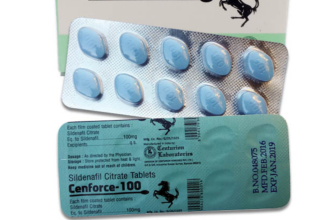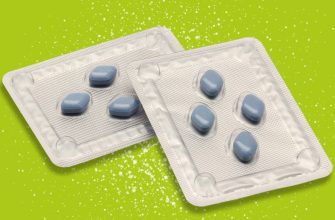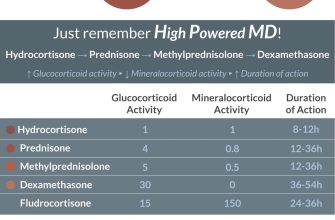Generally, a 150mg dose of Viagra is considered too high and not recommended. The typical starting dose is 50mg, and individual responses vary significantly. Exceeding the recommended dosage significantly increases the risk of side effects.
Always consult your doctor before taking Viagra or adjusting your dosage. They can assess your overall health, including any pre-existing conditions or medications you are taking, to determine the appropriate and safe dose for you. Factors like age, liver and kidney function, and other medical conditions directly influence safe dosage levels.
Common side effects at higher doses include headaches, flushing, nasal congestion, visual disturbances, and back pain. More serious, though rare, side effects like hearing loss, heart attack, and stroke are also possible at unsafe dosages. Your doctor can help you manage potential side effects and discuss the benefits and risks of treatment.
Remember: Self-medicating with Viagra or exceeding prescribed dosages is dangerous. A personalized assessment by a healthcare professional is paramount to ensuring safe and effective treatment.
Prioritize your health. Speak to your doctor.
- Is 150 mg of Viagra Safe? A Detailed Look
- Understanding Dosage and Risks
- Seeking Professional Guidance
- Recommended Viagra Dosage and Individual Variations
- Potential Side Effects of 150 mg Viagra
- Interactions with Other Medications and Health Conditions
- Seeking Professional Medical Advice for Safe Viagra Use
Is 150 mg of Viagra Safe? A Detailed Look
No, 150 mg of Viagra is generally not considered safe. The recommended starting dose is significantly lower.
The maximum recommended dose of Viagra is 100mg. Exceeding this significantly increases the risk of side effects. These can range from mild, such as headaches and flushing, to serious, including dangerously low blood pressure and heart problems. Individuals with pre-existing heart conditions face an elevated risk of adverse events.
Understanding Dosage and Risks
Viagra’s effectiveness doesn’t necessarily increase proportionally with dosage. Higher doses don’t guarantee better results, and the increased risk of side effects outweighs any potential benefit beyond the recommended dosage. Always consult a doctor before taking Viagra or altering your dosage.
Seeking Professional Guidance
Your doctor can assess your individual health status and determine a safe and effective dosage, considering any pre-existing conditions or medications you’re currently taking. They can also discuss alternative treatments if necessary. Never self-medicate or adjust your prescription without professional medical advice.
Recommended Viagra Dosage and Individual Variations
The typical starting dose for Viagra is 50 mg, taken as needed, about one hour before sexual activity. Your doctor may adjust this based on your response and individual needs. A lower dose of 25 mg might be prescribed if you experience side effects or have certain health conditions. Conversely, a higher dose of 100 mg might be considered if 50 mg is insufficient.
Several factors influence the appropriate Viagra dosage. Age plays a role; older men may require a lower dose. Liver and kidney function significantly impact how your body processes the medication; reduced function often necessitates a lower dose to prevent adverse reactions.
Pre-existing health conditions, such as heart problems, also influence dosage. Men with severe heart disease might need a lower dose or an alternative treatment. Concurrent medication use is another critical consideration. Certain medications can interact with Viagra, potentially increasing side effects or reducing its effectiveness. Always inform your doctor about all medications you are taking.
The recommended 150 mg dose is generally not considered a standard starting point. It’s crucial to discuss any dosage concerns directly with your physician. They will consider your medical history, current health status, and other medications to determine the safest and most effective Viagra dosage for you.
Remember, self-adjusting your dosage is risky. Always follow your doctor’s instructions and contact them immediately if you experience any unpleasant side effects.
Potential Side Effects of 150 mg Viagra
Taking 150 mg of Viagra significantly increases the risk of side effects compared to the recommended dosage. These can range from mild to severe.
Common side effects include headache, facial flushing, nasal congestion, and indigestion. These usually are temporary and mild. However, at higher doses, their intensity may increase considerably.
More serious side effects, though less common, include vision changes (blurred vision, blue tint to vision), prolonged erection (priapism), hearing loss, and heart problems such as chest pain or irregular heartbeat. Seek immediate medical attention if you experience any of these.
The risk of these serious side effects is notably higher with 150 mg than with lower doses. This dose also increases the likelihood of drug interactions with other medications, so always inform your doctor about all your current medications and supplements.
Always follow your doctor’s prescription and never exceed the recommended dosage. If you experience any concerning side effects, contact your doctor or seek immediate medical attention.
Interactions with Other Medications and Health Conditions
Always inform your doctor about all medications you take, including over-the-counter drugs, herbal supplements, and recreational drugs. Certain medications can interact dangerously with Viagra, potentially causing serious side effects. Nitrates, often prescribed for chest pain, are a prime example. Combining them with Viagra can drastically lower blood pressure, leading to dizziness, fainting, or even heart attack.
Alpha-blockers, commonly used to treat high blood pressure and enlarged prostate, can also interact negatively. This combination can significantly increase the risk of low blood pressure. Your doctor may need to adjust your dosages or choose alternative treatments.
Certain health conditions can also affect the safety of Viagra. Men with heart disease, liver problems, kidney disease, or blood cell disorders should discuss Viagra use with their physician before taking it. The drug’s effects might be amplified or cause complications in individuals with pre-existing conditions. Similarly, those with a history of stroke or uncontrolled high blood pressure need careful evaluation.
If you experience chest pain, irregular heartbeat, or sudden vision changes while taking Viagra, seek immediate medical attention. These could signal serious side effects requiring prompt medical intervention. Open communication with your doctor is key to safe and effective Viagra use.
Seeking Professional Medical Advice for Safe Viagra Use
Always consult your doctor before taking Viagra or any other medication for erectile dysfunction. This is paramount for your safety and health.
Your physician will conduct a thorough medical history review. This includes discussing existing health conditions such as heart disease, high blood pressure, and diabetes. They’ll also ask about current medications you’re taking, as interactions can occur.
- Heart conditions: Viagra can strain the heart; your doctor will assess your cardiovascular health to determine suitability.
- Blood pressure: Viagra can affect blood pressure; your doctor will monitor this closely.
- Medications: Some medications interact negatively with Viagra. Your doctor needs to know all your medications to prevent dangerous interactions.
- Allergies: It’s crucial to inform your doctor about any allergies you may have, including to Viagra’s components.
A physical examination may be performed to further assess your overall health. Blood tests might be ordered to evaluate your kidney and liver function, vital for processing the medication.
Following your doctor’s recommendations is critical. This includes adhering to the prescribed dosage and frequency. Never exceed the recommended dose.
- Obtain a prescription directly from your doctor. Do not purchase Viagra from unreliable sources online.
- Discuss potential side effects with your doctor. Be aware of symptoms such as headache, flushing, or visual disturbances.
- Report any unexpected side effects to your doctor immediately.
- Regular checkups will allow your doctor to monitor your progress and adjust treatment if needed.
Open communication with your doctor is key to safe and effective Viagra use. Don’t hesitate to ask questions about the medication or any concerns you have.








